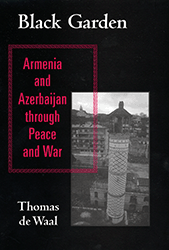Viewpoint: Setback for peace in the Caucasus
Viewpoint: Setback for peace in the Caucasus
By Thomas de Waal
This is a black week for those who are seeking a peaceful settlement of the long-running Armenian-Azerbaijani conflict.
On 31 August, in a deeply provocative move, Azerbaijani President Ilham Aliev pardoned convicted murderer Ramil Safarov on his return to Baku from a Hungarian prison.
Safarov had been attending a Nato training-course in 2004 when he killed Armenian fellow officer Gurgen Markarian with an axe while he slept.
read more










